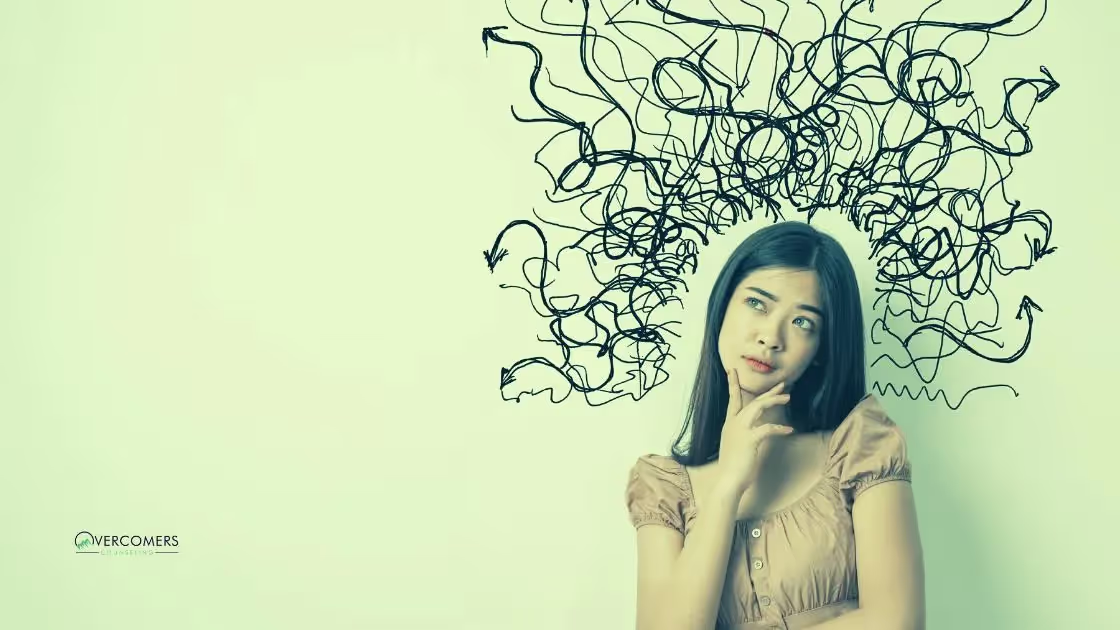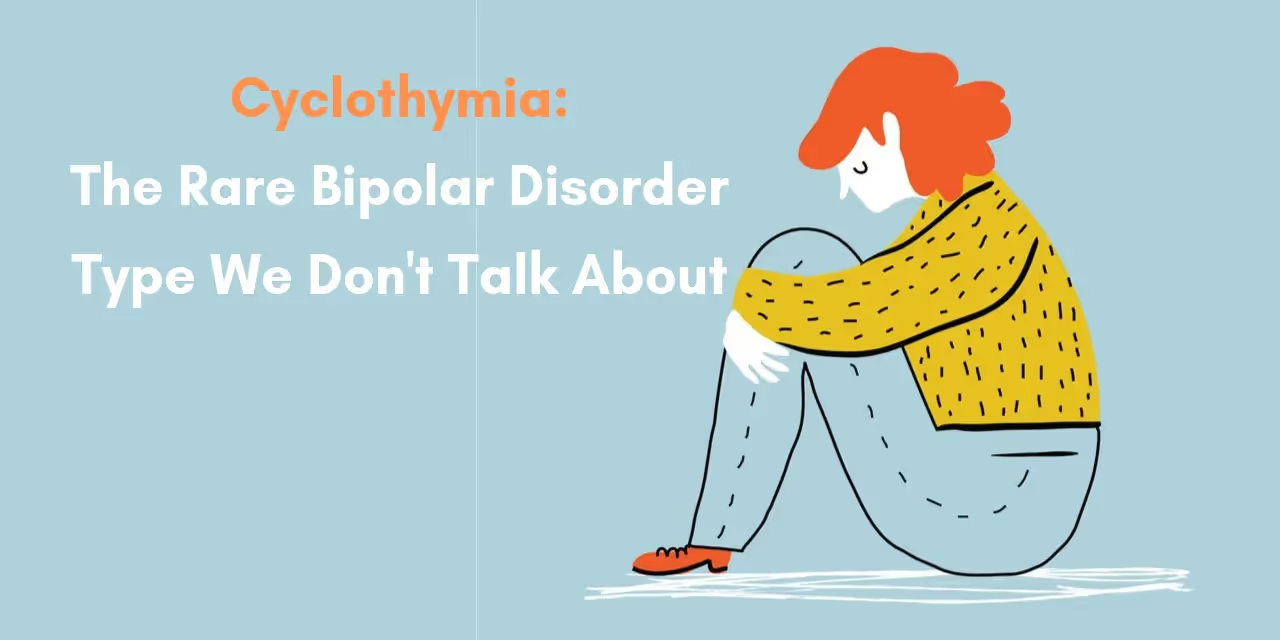If you have read my other two 2 blogs on Bipolar disorders you should likely already know this answer.If not, not a problem- I'll recap the major points and...

If you have read my other two 2 blogs on Bipolar disorders you should likely already know this answer.
If not, not a problem- I'll recap the major points and introduce new information as well.
Bipolar disorders are complex and the nuances make a big difference.
To make things more nuanced (and complicated) there's a 3rd bipolar-related disorder called Cyclothymia.
We can't officially answer the question "do I have bipolar?" unless we also investigate this 3rd disorder.
So, let's dive in.
A key feature in telling if you have bipolar is meeting the criteria for Major Depressive Disorder.
This is one thing that makes bipolar disorder complicated.
Bipolar is the combination of Major Depressive Disorder and expansive mood episodes categorized as either Hypomanic or Manic.
We'll explore those in a moment.
With all these factors it can be very difficult to truly know if someone has bipolar or is in a depressive episode.
Great care and attention need to be taken on the part of the therapist to assess the individual's personality and base level of function is.
For instance, if someone is naturally extraverted and high energy but going through a depressive episode it could very easily appear as if the person is having a hypomanic episode after the depression lifts.

The other definitive feature to know if you have bipolar is understanding what counts as a manic episode.
There are 2 types of manic episodes as alluded to above.
A Hypomanic is an elevated mood lasting 4 consecutive days in which the person has inflated self-esteem, is more talkative, needs less sleep, increases goal-directed activities, and engages in risky behaviors.
A Manic episode is an elevated mood lasting for a full week in which the person experiences the symptoms listed above.
ONLY if you meet the criteria for Major Depressive Disorder AND whether a hypomanic or manic episode do you have bipolar.
Now let's look at Cyclothymia.
This is the least known of bipolar disorders because the symptoms are less severe and shorter lasting.
Essentially, Cyclothymia is a pattern of elevated and depressed episodes over the course of a 2-year period.
The biggest difference between Cyclothyia and Bipolar I and Bipolar II is that Cyclothymia is only diagnosable if in that 2-year period you have never met the criteria for a Major Depressive Disorder, Hypomanic episode, or a full Manic episode.
If you have met the criteria for Major Depressive Disorder, then you have either Major Depressive Disorder or Persistent Depressive Disorder.
Combined with a Hypomanic episode and you have Bipolar II; combined with a full Manic episode and you have Bipolar I.
So, you now have a pretty good idea of an answer to the question, "Do I have bipolar?"
Likely, you do not.
Cyclothymia, Bipolar I, and Bipolar II are complex, and nuanced mental disorders that are a combination of depressive symptoms and manic symptoms.
Cyclothymia is a cyclical experience of hypomanic and depressive symptoms over 2 years that never meet the full criteria for hypomania or major depressive disorder.
Bipolar I requires full criteria for major depressive disorder AND a full manic episode.
Bipolar II requires full criteria for major depressive disorder AND a hypomanic episode.
The duration of depression counseling varies for each individual, depending on the severity of their depression and their progress in therapy. Our therapists will regularly assess your progress and adjust your treatment plan as needed.
While medication is not always required for managing depression, it can be beneficial in some cases. If you decide that medication is right for you, medications such as antidepressants work by balancing certain brain chemicals involved in regulating moods. Other options include mood stabilizers or antipsychotic drugs which may also prove helpful for certain individuals struggling with symptoms of depression.
Therapy provides many benefits for people battling depression. Research has shown that cognitive-behavioral therapy (CBT) is particularly effective in managing depressive symptoms. In addition, therapy can teach healthy coping skills and provide emotional support during difficult times. It may also be used as part of a comprehensive treatment plan which includes medication as well as lifestyle changes such as regular exercise and improved nutrition.
Yes! There are many effective natural remedies that may be beneficial in managing depressive symptoms, such as participating in regular physical activity, changing your diet, getting adequate sleep, practicing relaxation techniques like yoga or meditation, journaling about your feelings/thoughts/emotions, seeking out social activities/support groups with other individuals struggling with similar issues
Depression is a mental disorder (a common one) that affects millions of people worldwide. It is characterized by persistent feelings of sadness, hopelessness, and loss of interest in activities once enjoyed.In this section, we will discuss the various types of depression, including major depressive disorder, persistent depressive disorder, and bipolar disorder.Gaining a deeper understanding of your depression is the first step in finding the right treatment and support.
Addressing depression is crucial because it can significantly impact your quality of life, overall well-being, and ability to function in daily activities. Left untreated, depression can lead to more severe mental health issues, relationship problems, and physical health complications.